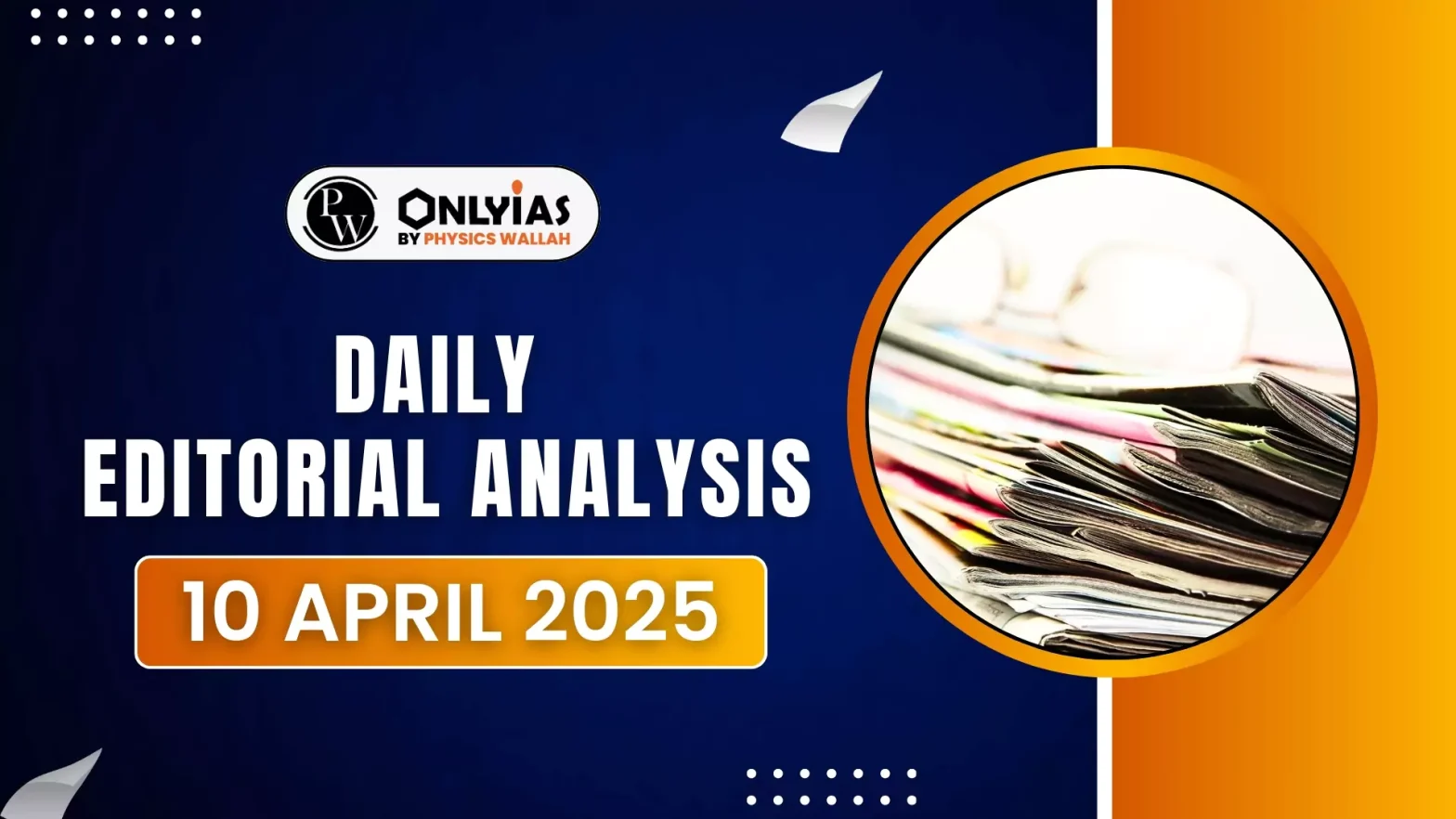In a significant ruling, the Supreme Court set aside the decision of Tamil Nadu Governor R N Ravi to withhold assent to 10 pending Bills, calling it illegal and erroneous.
Supreme Court’s Verdict
- Implications: This decision has implications for the role of Governors in Opposition-ruled states, where relationships with the Centre can be politically charged.
- Pending Cases: A similar case is pending before the Supreme Court regarding delays by the Kerala Governor in granting assent to Bills.
Constitutional Provisions Regarding the Governor’s Role
- Article 163: It deals with the general powers of the Governor, stating that the Governor acts on the advice of the Council of Ministers, except in cases where the Constitution specifically provides otherwise.
- Article 200: This article governs the procedure when a Bill passed by the state legislature is presented to the Governor for assent. The Governor has four options:
- Grant assent to the Bill
- Withhold assent to the Bill
- Return the Bill for reconsideration
- Reserve the Bill for the consideration of the President
- Article 200: The Governor may return a Bill (other than a money Bill) for reconsideration by the state legislature. However, after the legislature reconsiders the Bill and sends it back, the Governor shall not withhold assent.
- Discretionary Power: The Governor claims the power to exercise discretion in granting assent to Bills.
- However, the Supreme Court has clarified that this discretion cannot be used arbitrarily or based on personal preferences.
- It must align with constitutional provisions and be supported by cogent reasons.
Issues with Bills Pending with the Governor
- Lack of Timeframe: While the Constitution mandates that the Governor return a Bill “as soon as possible,” no specific timeframe is defined.
- This has led to situations where Raj Bhavans (Governor’s offices) have delayed or withheld assent to Bills indefinitely without returning them to the legislature.
- Political conflicts: In Opposition-ruled states, the lack of clarity regarding the timeframe for returning Bills has resulted in political conflicts.
- Exploiting Loopholes: Governors, especially in states governed by parties opposing the Centre, have exploited this ambiguity to delay assent or withhold it altogether, leading to friction between the state and Centre.
- Mandatory Nature : Article 200 of the Constitution mandates that the Governor “shall” either assent to the Bill or return it to the legislature.
- The use of “shall” signifies a mandatory obligation on the Governor, indicating the framers’ intent to avoid indefinite delays.
- Impact of the Delay: The indefinite delay in deciding on Bills by the Governor can potentially paralyze the elected government.
- The Tamil Nadu government argued that such delays amount to a “pocket veto,” where the Governor’s decision is withheld for political reasons, undermining the legislature’s authority.
Supreme Court’s Rulings on the Issue
- 2016 Arunachal Pradesh Assembly Case: In Nabam Rebia and Bamang Felix vs Deputy Speaker, the Supreme Court ruled that a Governor cannot withhold assent indefinitely. The Court emphasized that the Governor must return the Bill with a message and provide recommendations for amendments if necessary.
- Rule referred by Courts: The Court referred to Rule 102 and Rule 103 of the legislative rules, which outline the process for the Governor returning Bills with messages for reconsideration by the legislature.
- 2023 Punjab Case: In The State of Punjab vs Principal Secretary To The Governor, the Supreme Court ruled against the Governor of Punjab for withholding assent to Bills, arguing that the Governor cannot thwart the normal lawmaking process.
- Aligning with Constitution: The Court reiterated that the Governor’s powers under Article 200 should be exercised in a manner consistent with constitutional processes, specifically requiring Bills to be returned for reconsideration.
- Tamil Nadu Case 2025: The Supreme Court’s decision on Tamil Nadu Case further clarified the Governor’s role in granting assent to Bills under Article 200 of the Constitution.
- Article 142: Building on its 2023 ruling, the Court set specific time limits for the Governor’s actions and exercised its powers under Article 142 to declare 10 Bills as having received assent, due to prolonged delays in the Governor’s response.
Key Aspects of the Court’s Ruling in the Tamil Nadu Case
- Time Limits: The Governor must act on Bills within specific timeframes to prevent indefinite delays.
- Reservation of Bills for the President must occur within three months unless the Bill is significantly altered after reconsideration.
- Post reconsideration: After reconsideration, the Governor must grant assent within one month, subject to certain exceptions.
- Powers under Article 142: The Supreme Court invoked Article 142 to declare the 10 Bills as having received assent, citing the unduly long delay by the Governor and the lack of respect shown to the Court’s previous decisions on similar matters.
Implications for Similar Cases
- Kerala: The state had petitioned against the delay of three Bills by Governor Arif Mohammad Khan for over two years and other Bills for over a year.
- Despite the Kerala High Court refusing to intervene, the case has now moved to the Supreme Court.
- Telangana: Similar arguments were made in Telangana, where over 10 key Bills were pending with Governor Tamilisai Soundararajan, with some Bills waiting since September 2022.
Conclusion
The Supreme Court’s ruling has established clearer guidelines for the Governor’s responsibilities regarding Bills passed by the state legislature. It also strengthens the role of the judiciary in ensuring timely governance and addressing political delays.
![]() 10 Apr 2025
10 Apr 2025
